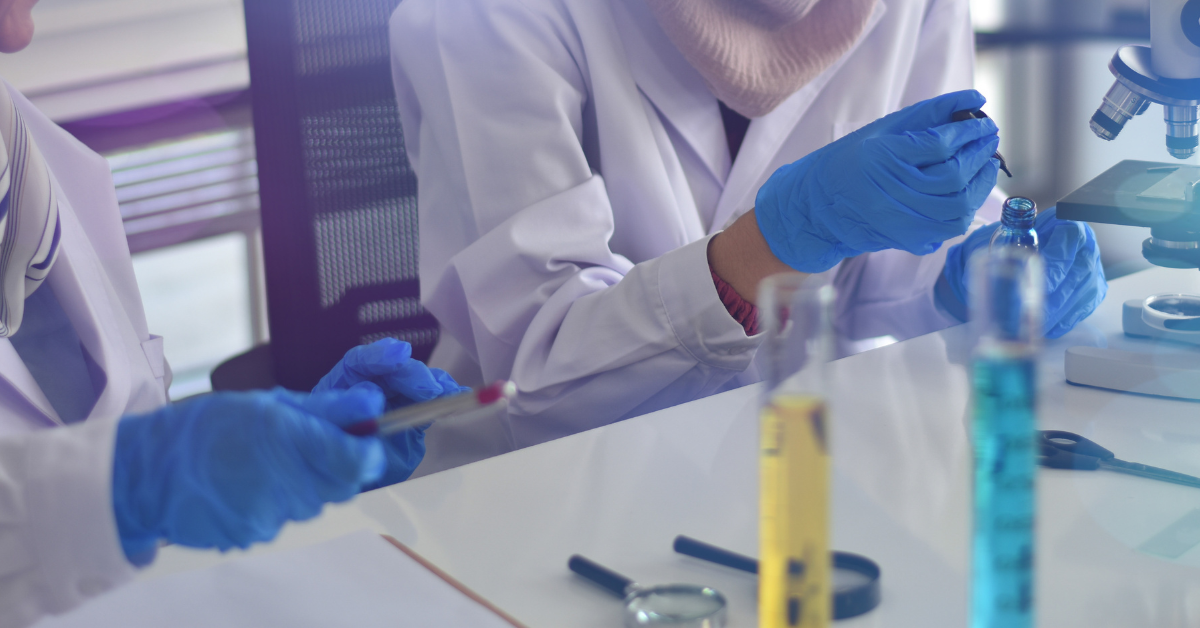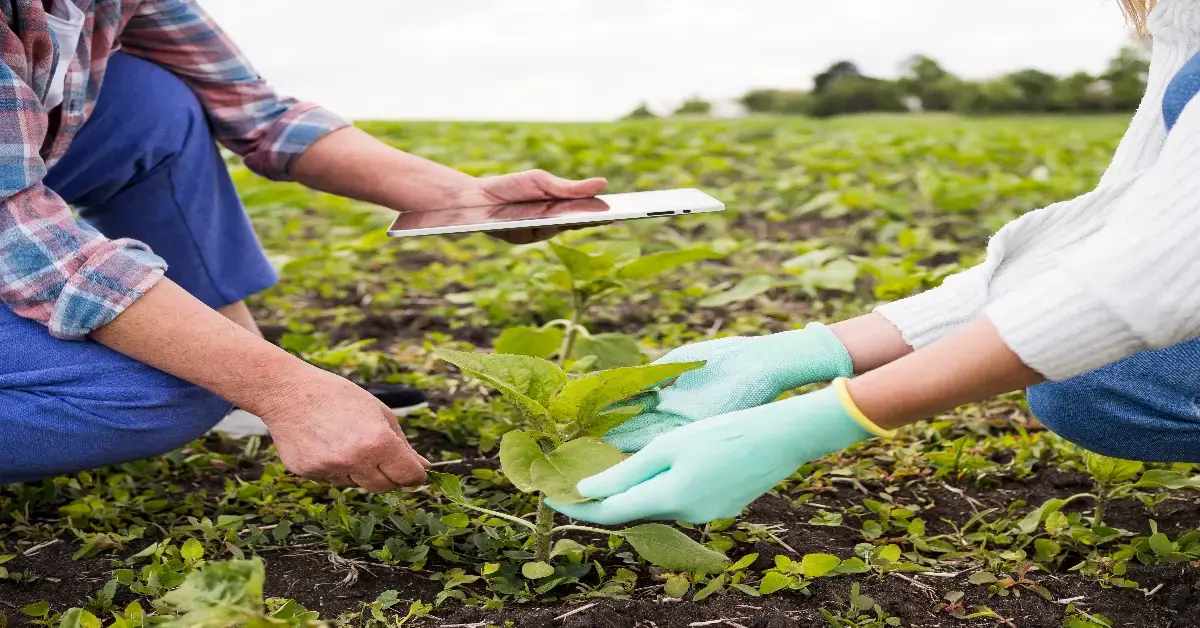How Wimpey Laboratories Upholds the Highest Standards in Halal Testing

The demand for Halal-certified products continues to grow, reflecting a broader commitment to authenticity and religious adherence. As the market expands, ensuring the integrity of Halal products has never been more important. Wimpey Laboratories, part of the Cotecna Group, is a leading testing facility based in Dubai, UAE which stands at the forefront of Halal testing. By combining advanced technology with a deep understanding of Halal requirements, Wimpey Laboratories provides comprehensive and reliable Halal testing services.
Why Halal Testing Matters

Halal testing is more than just a quality assurance process; it’s a fundamental promise to consumers that products meet Islamic dietary laws. This process includes verifying the absence of prohibited substances such as pork and alcohol and confirming that all preparation methods align with Islamic principles. Halal testing is crucial for maintaining trust and integrity in a market where both religious adherence and ethical standards are crucial.
For consumers, Halal certification represents a guarantee of quality and faithfulness to dietary laws. For manufacturers, it’s about meeting rigorous standards to access a growing market and build consumer confidence. Thus, Halal certification plays a vital role to ensure that products are both compliant and trustworthy.
The Comprehensive Approach of Wimpey Laboratories
Wimpey Laboratories is renowned for its meticulous approach to Halal testing. Our services cover a wide range of testing parameters, each designed to ensure that products meet the highest standards of Halal compliance. Here’s an in-depth look at how Wimpey Laboratories ensures the authenticity and safety of Halal products:
1. Ingredient Verification
Ingredient verification is a cornerstone of Halal testing. Wimpey Laboratories employs advanced analytical techniques such as mass spectrometry and chromatography to detect even the smallest traces of non-Halal substances. It confirms that products are free from prohibited ingredients like pork derivatives or alcohol.
- Why It’s Important: Ingredient verification helps maintain consumer trust by ensuring that products are genuinely Halal. It also helps avoid legal and religious compliance issues while reassuring consumers that products adhere to Halal standards.
2. Cross-Contamination Prevention
Cross-contamination is a significant concern in Halal food production. Wimpey Laboratories implements stringent measures to prevent Halal products from coming into contact with non-Halal substances including surface swab testing, equipment checks, and DNA analysis to ensure that no trace of non-Halal substances is present.
- Why It’s Important: Preventing cross-contamination is crucial for upholding the purity and integrity of Halal products during production. By ensuring that every element of the production environment adheres to Halal standards, Wimpey Laboratories plays a key role in maintaining product safety and enhancing consumer confidence.
3. Alcohol Detection
Since alcohol is strictly prohibited in Halal products, Wimpey Laboratories uses precise methods like gas chromatography to detect and quantify alcohol residues. Hence, ensuring that every product adheres to Halal standards and provides assurance to consumers that the products they are consuming are compliant with their religious practices.
- Why It’s Important: Detecting and removing any traces of alcohol is essential for Halal compliance and consumer confidence; by ensuring that products are alcohol-free, this process adheres to religious requirements and offers peace of mind to consumers.
Pre-Requisites for Effective Halal Testing
For accurate and reliable Halal testing, certain pre-requisites must be in place:
- Deep Understanding of Halal Standards: Laboratories must have a comprehensive understanding of Halal dietary laws, ingredient sources, and preparation practices including familiarity with standards set by recognized Halal certification bodies.
- Qualified Personnel: Analysts should be trained and knowledgeable about Halal testing procedures. Ongoing training and certification are necessary to stay updated with evolving Halal standards and methodologies.
- Advanced Facilities and Equipment: Laboratories should have designated areas to prevent cross-contamination between Halal and non-Halal products. Sophisticated testing equipment must be regularly calibrated and maintained to ensure accuracy.
- Strict Hygiene Protocols: Rigorous cleaning and sanitization procedures are crucial to prevent cross-contamination. It includes maintaining strict personal hygiene standards for laboratory staff.
- Comprehensive Documentation: Accurate records of testing procedures, results, and certification status are essential for transparency and verification.
- Collaboration with Certification Bodies: Establishing strong relationships with recognized Halal certification authorities helps ensure alignment with certification requirements and facilitates the auditing process.
- Clear Testing Procedures: Developing and implementing Standard Operating Procedures (SOPs) for Halal testing ensures consistency and reliability in testing processes.
- Consumer and Market Awareness: Understanding consumer expectations and market trends related to Halal products helps ensure that testing meets market demands and addresses consumer feedback effectively.
What Wimpey Laboratories Offers
Wimpey Laboratories provides a range of specialized testing services to ensure product safety, Halal compliance, and regulatory adherence:
- Qualitative Analysis of Pork and Pork Derivatives: The test identifies the presence of pork and its derivatives in food and feed samples, ensuring adherence to Halal dietary laws.
- Qualitative Analysis of Lard in Cosmetics: Detects lard and its derivatives in cosmetic products, aligning with Halal guidelines.
- Meat Species Identification: Identifies meat species in food and feed samples, confirming that the meat is from permissible animals and not mixed with non-Halal meats.
- GMO Detection: Tests for genetically modified organisms (GMOs) using specific markers, helping meet regulations related to GMO labeling and supporting consumer choice.
- Alcohol Residue Testing: Detects alcohol residues in food and beverages, ensuring compliance with Halal standards.
Each of these tests is designed to enhance product safety, ensure regulatory adherence, and build consumer trust by verifying that products are correctly labeled and free from unwanted ingredients.
Why Choose Wimpey Laboratories
Wimpey Laboratories distinguishes itself through:
- Expertise and Precision: With a deep understanding of Halal requirements and advanced analytical techniques, Wimpey Laboratories ensures precise and reliable testing.
- Global Compliance: Our services facilitate compliance with international standards, making it easier for manufacturers to access global markets.
- Commitment to Integrity: Wimpey Laboratories is dedicated to maintaining the highest levels of safety and authenticity in Halal products, supporting both consumer confidence and regulatory compliance.
By combining rigorous testing with global compliance, Wimpey Laboratories ensures that your products meet Halal standards and are ready for international markets.
Halal Certification
As a part of the Cotecna Group, Wimpey Laboratories is a part of a global network of experts that can assist you in gaining a Halal Certification. Cotecna Dubai is accredited by the GCC Accreditation Center (GAC - HPC 0060), notified by the United Arab Emirates MoIAT (Ministry of Industries and Advance Technology) and Saudi Food and Drug Authority (SFDA) to provide Halal Certification services globally. In addition, Cotecna is accredited for Halal Slaughtering in Kenya.
To learn more about Halal Testing and Halal Certification, please contact us.

08.04.2025
Innovation and Precision: How Complex Diagnostics Are Transforming Plant Health in the Field
Harnessing Technology for Smarter, More Sustainable Crop Protection.

03.04.2025
Cotecna COO Romain PETIT’s Visit to China
From March 24 to April 1, 2025, Cotecna Group Chief Operating Officer Romain PETIT visited China for a week-long trip.

